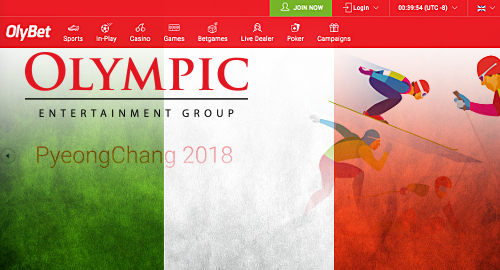 Eastern European casino operator Olympic Entertainment Group (OEG) is looking to make inroads into Italy’s regulated online gambling market.
Eastern European casino operator Olympic Entertainment Group (OEG) is looking to make inroads into Italy’s regulated online gambling market.
On Wednesday, OEG announced that it had registered a new wholly owned Italian company, Olybet Italia S.r.l.. The new entity is intended to allow OEG “to develop the legal platform for the expansion of OEG group’s activities in the business of remote gambling.”
OEG currently operates online gambling under its Olybet sports betting brand. One year ago, OEG established a Malta-based subsidiary for similar online expansion into unspecified markets.
For the record, Olybet already operates a .it site, but while it offers services in English, Norwegian, Swedish, Finnish and Russian, it doesn’t actually have an Italian language option.
OEG has long been active in Italy’s land-based gambling market, having launched a video lottery terminal (VLT) joint venture with local operator GHolding way back in 2012. OEG’s Italian division accounted for revenue of €30m in 2017, 13% higher than the year before and ranking the market behind only Latvia and Estonia on OEG’s geographic revenue chart.
OEG appears to be interested in acquiring one of the 120 new online gambling licenses that Italy put up for grabs last month. However, with less than a month to go before the March 19 deadline for applying, response to the license tender has reportedly been underwhelming.
On Wednesday, Italian gaming news agency Agimeg reported that Italy’s gambling regulator had so far received “less than 10 applications” for the new licenses, which cover pretty much all gambling activity – sports and race betting, casino, poker, exchange betting, virtual sports, etc.
The licenses cost €200k apiece and are valid through 2022. Applicants must already hold an online gambling license in a European Union member state and boast annual turnover of at least €1.5m over the past two years. If applicants can’t meet these standards, they have to put up an additional €1.5m bank guarantee.
The Italian government reportedly expected at least half of the available licenses to go to existing licensees whose original concessions were expiring. While there’s still plenty of time left, the government may be eyeing the calendar nervously and wondering what it might have done wrong, particularly given the market’s phenomenal growth over the past year.